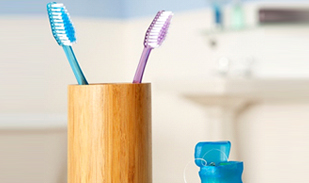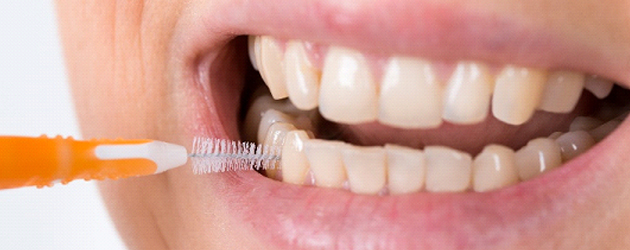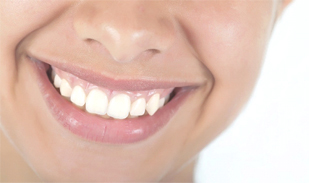Every time you attend for a dentist or hygienist appointment, they extol the virtues of interdental cleaning. But do you know why interdental cleaning is such an important part of your oral hygiene routine? The most important part of tooth care happens at home and in this month’s blog we look at why you shouldn’t be avoiding interdental cleaning.
- How do interdental cleaners work?
Did you know that brushing alone only reaches 60% of the tooth surface? Dental plaque builds up between your teeth where a toothbrush does not reach. Plaque usually hardens on the teeth within 24 to 36 hours. If you regularly floss and brush your teeth, plaque will not get a chance to harden on your teeth.
Regular use of interdental cleaners removes plaque, which if left can lead to tartar build up. Interdental cleaning helps to prevent tooth decay and can reduce your risk of developing gum disease.
Using interdental cleaning aids daily combined with brushing using a fluoride toothpaste can help to protect against gum disease by removing plaque and food particles, keeping your teeth and gums healthy, while giving you a beautiful smile. Interdental cleaning is essential to your smile’s health, no matter what your age.
- Other health benefits to interdental cleaning
Daily flossing doesn’t just keep your teeth healthy – practicing good oral hygiene contributes to your health in other ways, too. In fact, there’s an increasing amount of evidence linking periodontal disease to an increased risk of heart disease, diabetes, strokes, poor pregnancy outcomes and even dementia. Looking after the health of your gums through a good oral hygiene routine is even more important than ever.
- What should I do if my gums bleed?
Many people who suffer with sensitive or bleeding gums may be tempted to avoid interdental cleaning for fear of making their bleeding gums worse. But in fact, interdental cleaning can improve the health of your gums, thereby helping to prevent them from bleeding. The fact that your gums are bleeding makes it even more important that you continue with your interdental cleaning.
- What should I do first?

- When should I see a dentist?
Not only should you see your dentist for regular routine dental appointments, you should also attend if you suspect any problems with your oral health.
Your dentist can check your teeth and order dental X-rays to help identify any problems. Signs that you need to see a dentist include:
- red, swollen gums
- gums that bleed easily after brushing or flossing
- sensitivity to hot and cold
- persistent bad breath
- loose teeth
- receding gums
- tooth pain
Dental problems like cavities and gum disease are preventable, but the key is sticking with a good dental care routine. This involves regularly using interdental brushes and brushing with a fluoride toothpaste.
If you would like to find out more information on the best interdental cleaning aids to meet your needs. Call Maidstone Dental & Implant Centre today on 01622 682 029 to book an appointment with our hygienist today.






